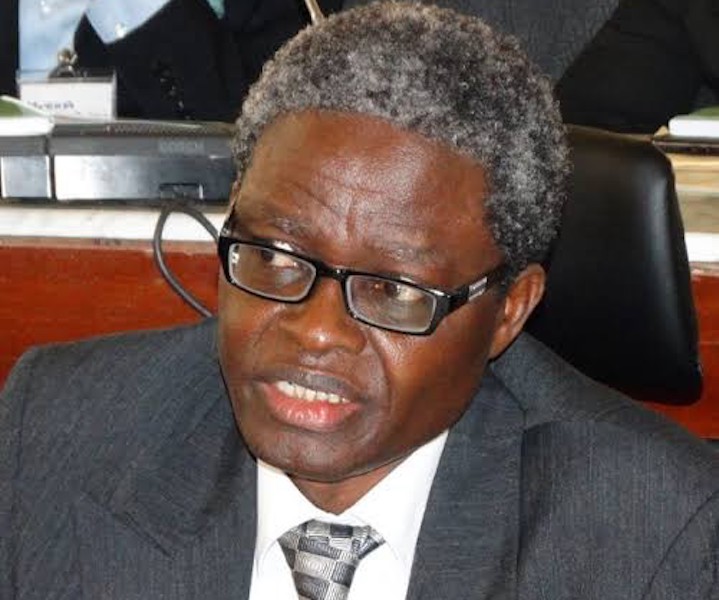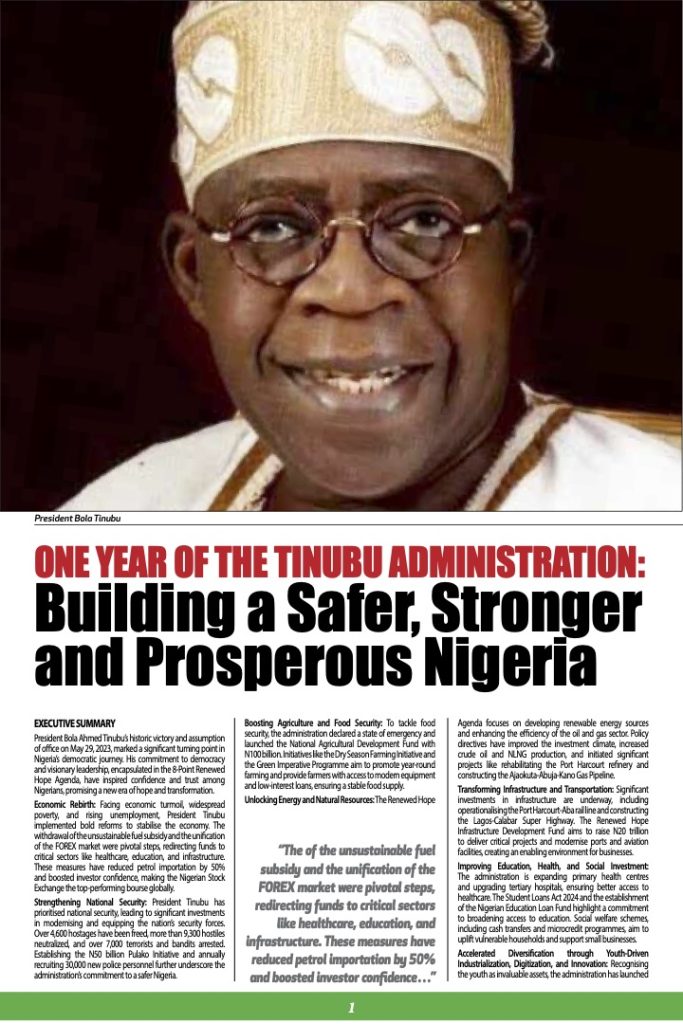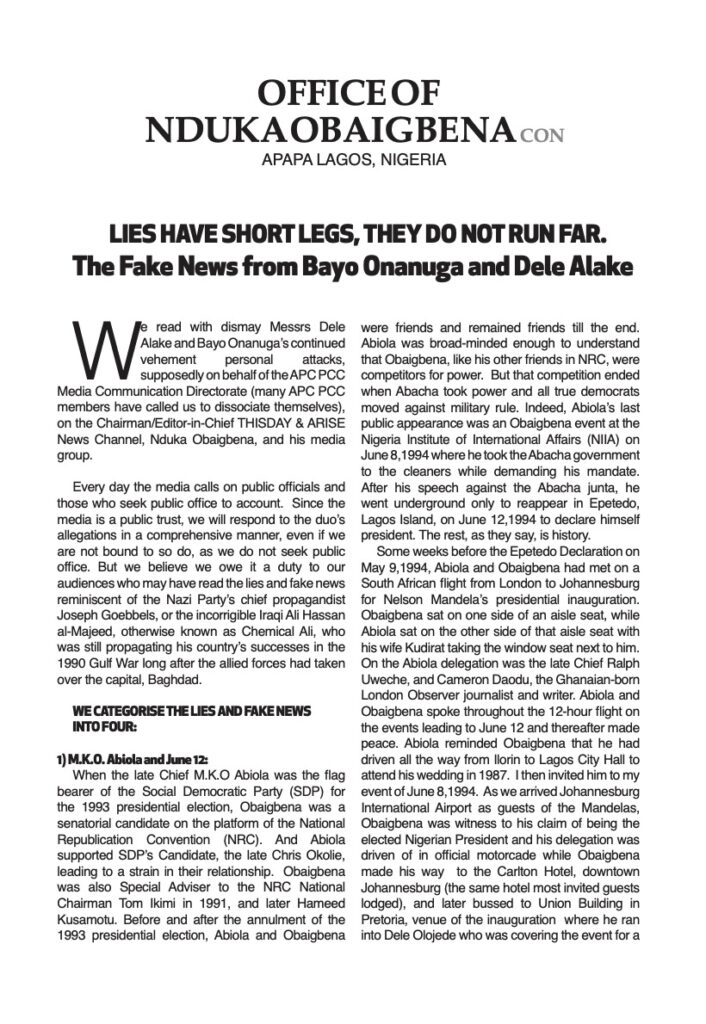Latest Headlines
Solidarity-Driven Diplomatic Rupture and Africa’s Recidivist Insecurity: The Mali-Niger Ukrainian Dimensions

Bola A. Akinterinwa
Diplomatic rupture is synonymous with strained relations which inhibit cooperation at various levels. It is an expression of misunderstanding, which, more often than not, is a resultant from serious foreign policy disagreement. In an attempt to prevent such disagreements, the 1963 OAU Charter sought ‘a common determination to promote understanding among our peoples for brotherhood and solidarity in a larger unity transcending ethnic and national difference.’ This was what was considered as an ‘inspiration by common determination’ in the fifth paragraph of the preamble to the Charter of the Organisation of African Unity (OAU).
More importantly, in pursuance of this determination and translating it into ’a dynamic force in the cause of human progress, conditions for peace and security must be established and maintained.’ And perhaps most significantly, Article II (2a and 2b) of the Charter stipulated that the OAU ‘shall coordinate and harmonise their general policies, especially in the fields of ‘political and diplomatic cooperation’ and ‘Cooperation for defence and security.’ In other words, defence and security was taken as a top priority, not simply as an objective, but also as a means of sustainable development in Africa.
With the transformation of the OAU to the African Union (AU), cooperation for defence and security is still maintained as a top priority. As noted in the preamble to the AU Constitutive Act, the AU is ‘conscious of the fact that the scourge of conflicts in Africa constitutes a major impediment to the socio-economic development of the continent and of the need to promote peace, security and stability as a prerequisite for the implementation of our development and integration agenda.’ In spite of these provisions, governance has been fraught with recidivist insecurity in Africa. And to a great extent, it has not only engendered foreign interference and intervention, the foreign intervention has also prompted solidarity-driven diplomatic rupture in the foreign relations of many African countries.
Diplomatic Rupture in Practice
Diplomatic rupture, as noted above, is lato sensu an off-shoot of misunderstanding and disagreement. Rupture can exist as a result of legitimate self-defence, reciprocity, and abuse of diplomatic privileges and immunities. The increasing concerns about diplomatic ruptures in international relations has apparently prompted the 11th European Workshop in International Studies (EWIS) to focus its attention on ”Workshop on Deviation: Ruptures and Changes in/via Diplomatic Encounters,” and to also call for papers. In explaining diplomatic rupture as a noisome problem and a resultant of faux pas in a particular situation, the EWIS noted in its concept note that diplomatic rupture ‘is produced performatively for the purpose of signalling to the other and to wider observing audience. It can also be deployed with the objective of disruption, of upending existing hierarchies and social relations, or of initiating a broader recasting of order and international politics. But it may also emerge unexpectedly, as a result of a variety of aspects affecting diplomatic intercourse, either as fleeting, irrelevant diplomatic incidents, other times fuelling old rivalries or provoking new ones.’
Without iota of doubt, several examples of diplomatic ruptures have existed since classical to contemporary times in international relations. For example, Mexico strained its diplomatic relations with the United States in 1845 when the United States annexed Texas. This led to a dispute over the southern Texas-Mexico border. While Texas argued that its southwest boundary extended to the Rio Grande, Mexico claimed that the boundary was the Nueces River, which is about 160 km eastward. Based on this disagreement, Mexico strained its diplomatic ties with the United States. This lends credence to the observation that any type of disagreement can precipitate rupture in diplomatic relations.
It is on record that Yugoslavia and Albania strained their diplomatic relations in July 1927 when an attaché of the Yugoslav Legation in Tirana was arrested based on allegations of espionage. In the words of Professor Frederic A. Ogg of the Political Science Department of the University of Wisconsin, ‘the Yugoslav Chargé d’Affaires, with his staff, left Albania Minister at Belgrade, Cena Bey, was handed his passport with forty-eight hours’ notice… The French Legation agreed to protect the Yugoslav interests in Albania and Italy consented to act in a similar capacity for Albania in Belgrade.’
More importantly, Professor Ogg had it that ‘both Albania and Yugoslavia laid their respective versions of the case before the League of Nations, the former immediately, the latter on June 12, on the eve of the forty-fifth session of the League Council… At all events, the Italian press openly denounced the attitude of Yugoslavia, and unquestionably the action of Belgrade played directly into Italian hands, especially because of its precipitateness and its uncertain justification.’ It is clear from the foregoing that several reasons can account for diplomatic rupture. There is the allegation of espionage. There is also the catalytic factor of the Italian media in the matter. This simply means that the media can always in a significant manner impact on diplomacy.
Again in 1948, there was another diplomatic rupture as a result of border conflict which lasted from 1948 to 1954. When the border was closed, 7,877 border incidents occurred out of which there were 142 substantive clashes that led to armed conflicts at the border. For more than 40 years, Albania-Yugoslavia border was closed.
The OAU’s directive to all its Member States following Ian Smith’s Unilateral Declaration of Independence (UDI) is quite relevant here. As revealed on 18 December, 1965, by the Directorate of the Central Intelligence Agency in its declassified report with reference number OCI NO 2956/65 on ‘Implications of Ghana’s Diplomatic Rupture with the UK,’ ‘although Nkrumah’s speech in the National Assembly on 16 December kept open the door for Ghana to participate in any early Commonwealth meeting on Rhodesia, such as Nigeria has proposed, Nkrumah had officially informed British Prime Minister Wilson on 14 December that a break with Britain “would mean Ghana’s withdrawal from the Commonwealth.” UDIis the reason for diplomatic rupture in this case.
Like many others, Mexico strained its diplomatic ties with Ecuador on 6 April 2024 following the Ecuadorian government’s abuse of international diplomatic law: the law enforcements agents, particularly the policemen of Ecuador forced themselves into the Mexican Embassy without the consent of the Ambassador of Mexico, in order to arrest the Ecuadorian Vice President, Jorge Glas, who was accused of several acts of indiscipline.
The Vice president went to the Mexican embassy in Quito to seek diplomatic refuge and, as well to take the opportunity to check out of Ecuador. The Ecuadorian government did not want its Vice President to escape and therefore opted to use an extraordinary force to enter the Mexican Embassy and arrest Mr Jorge Glas who had been in the embassy since December 2023. Breaking into the diplomatic premises of Mexico in Quito is a very serious violation of the 1961 Vienna Convention on Diplomatic Relations. The Mexican President, Andrés Manuel López, announced the severance of diplomatic relations with Ecuador in protest and with a promise to also refer the matter to the International Court of Justice.
The Vice President was quickly removed from the Office of the Attorney-General the following day to the maximum-security prison in the port city of Guayaquil. Sonia Vera, the attorney to the Vice President, narrated the brutality of the arrest thus: the Ecuadorian policemen broke into his room, Jorge Glas resisted when they attempted to put his hands behind his back, then they ‘knocked him to the floor, kicked him in the head, in the spine, in the legs, in the hands,’ and when he couldn’t walk, they dragged him out.’ In this case, Mexico has the full responsibility to protect an asylee in his diplomatic premises in compliance with the obligations created by the Vienna Convention on Diplomatic Relations.
What is noteworthy in this case was that when President Daniel Noboa of Ecuador considered Glas ‘imminent flight risk’ and the difficulties in having any dialogue with Mexico, he gave instruction on the need to violate the Embassy of Mexico. The argument given by the Ecuadorian Foreign Minister, Gabriela Sommerfield, was that, ‘it is not legal to grant asylum to people convicted of common crimes and by competent courts.’ This argument is surely ridiculous in light of the consideration of a diplomatic mission as exterritorial, and therefore inviolable.
On August 9, 2024 Soner Cagaptay, in his “Israel-Turkey Relations Nearing a Rupture,” (vide the Washington Institute’s Policy Watch no 3910) explained the many pointers to the nearing rupture in Turkey’s relationship with Israel because of Israel’s assassination of a Hamas leader, Ismail Haniyeh, in Tehran. While Israel-Turkey relations are yet to resort to diplomatic rupture, that is, while the relationship is still at the level of diplomatic crisis, and reportedly just nearing diplomatic rupture, it should be simply said that vested national interest generally defines the parameters for straining diplomatic ties. It is only the nature of the national interests involved that also defines the rigidity, sophistication, duration, modalities for resolution and implications.
What is observable here is that the world is currently witnessing a shift from espionage, disputes, wars, disagreements, economic sanctions, etc. as excuses for resorting into diplomatic rupture to political solidarity as a new rationale.
Niger’s Solidarity-Driven Diplomatic Rupture
One immediate rationale for Niger’s solidarity-driven diplomatic rupture with Ukraine is the new entente cordiale predicated on the Alliance of Sahel States (ASS), a defence and security pact. Three complementary factors largely explain the development of the ASS. First is the rejected roles of France, their former colonial master, whose efforts through Barkhane Operation to contain the Jihadists and the Tuareg insurrection are perceived to have failed. Besides, rather than seeing France as a helper and solution to their problems, France is seen as an exploiter of their national resources for the development of France and Europe and not for their own development.
The second rationale is the factor of the ECOWAS (Economic Community of West African States), from which the three Member States of the ASS have given notice of withdrawal. The ECOWAS has zero tolerance for unconstitutional changes of government in Africa and particularly in the West African region. Article 30 of the Constitutive Act of the African Union on Suspension, says ‘Governments which shall come to power through unconstitutional means shall not be allowed to participate in the activities of the Union.’
More importantly, any form of unconstitutional change of government is no longer simply a political issue but a legal matter. It is now a crime within the framework of the jurisdiction of the African Criminal Court that is still in the making. Article 28E of the Malabo Protocol was provided to serve as the legal basis of the African Criminal Court. The article explains what may constitute a crime as follows: a) a putsch or coup d’état against a democratically-elected government; b) an intervention by mercenaries to replace a democratically elected government: c) any replacement of a democratically elected government by the use of armed dissidents or rebels or through political assassinations; d) any refusal by an incumbent government to relinquish power to the winning party or candidate after free, fair and regular elections; e) any amendment or revision of the Constitution or legal instruments, which is an infringement on the principles of democratic change of government or is inconsistent with the Constitution; f) any substantial modification to the electoral laws in the last six months before the elections without the consent of the majority of the political actors (vide Article 23 of the African Charter on Democracy, Elections and Governance; the Malabo protocols; and Harmen van der Wilt, “Unconstitutional Change of Government: A New Crime within the Jurisdiction of the African Criminal Court,” cambridge.com).
Thus, unconstitutional change of government has become a very critical issue in Africa’s intra and inter-state relations. It was because of this issue of zero tolerance for unconstitutional change of government that led to the withdrawal of the ASS countries from the ECOWAS. It began with Mali, followed by Burkina Faso, and again by Niger. The three regimes in the three countries came to power unconstitutionally. But most surprisingly, they all enjoy popular support, especially in Burkina Faso, where, if democratic elections were to be held today, the likelihood of Captain Ibrahim Traoré being elected with more than 80% votes cannot be easily wished away. As Mali has strained diplomatic ties with Ukraine and Niger has followed the same path, that Burkina Faso will not also follow suite is a moot question and a matter of time. Russia is now a regional influential in the Sahel sub-region.
The third rationale for the break in diplomatic ties is the statement reportedly ascribed to a Ukrainian official spokesman for Ukrainian military intelligence, Andriy Yusov, that the rebels and anti-Malian government received ‘the necessary information they needed’ to launch attacks on Wagner and Russian interests in Mali. In other words, Ukrainian government has openly claimed responsibility for carrying out attacks on Russians and the Wagner group on the sovereign land of Mali, an attack that has continued to be generally condemned.
The Malian government accused Ukraine of violating its territory and therefore announced the breaking off of diplomatic ties with Ukraine ‘with immediate effect. In the eyes of Amadou Abdramane, the spokesman to the Government of Niger Republic, the statement by the Ukranian spokesperson was unacceptable, and therefore, on Tuesday, August 6, 2024 Niamey similarly announced the breaking off of diplomatic ties with Ukraine. The politics of the Ukrainian July attack in Mali has been quite interesting: Mali’s decision to strain ties with Kyiv is seen as ‘short sighted and hasty and that it is the Russians that have been engaged in war crimes and not Ukraine that has been respectful of international law. Russia has responded that Presdient Zelensky of Ukraine is not only opening a second war front in Africa, but that he is only ‘pandering to terrorist groups in countries on the continent friendly to Moscow.’ Most unfortunately in all these cases, Ukrainian government is seeking more alliances with Africa, more African support for its war against Russia, but the Ukrainian intervention in Mali has been generating more of hostility rather than friendship. It is against this background that the implications of straining diplomatic ties are explicated.
The first implication of Niger’s decision to strain diplomatic ties with Ukraine in sympathy with Mali is the acceptability of a third party that will have the responsibility to protect the interests of the two countries. As stipulated in Article 45 of the 1961 Vienna Convention on Diplomatic Relations, ‘if diplomatic relations are broken off between two States, or if a mission is permanently or temporarily recalled, a) the receiving State must, even in case of armed conflict respect and protect the premises of the mission, together with its property and archives.’ Article 45 says further in paragraph b) that the ‘sending State may entrust the custody of the premises of the mission, together with its property and archives, to a third State acceptable to the receiving State.’
In the context of both Niger and Mali, can the relationship between Niger and Nigeria be quickly improved enough to qualify Nigeria to offer to protect the interests of the Niamey authorities in Kiev? It is not likely. Benin Republic is also not likely. Niamey would normally prefer anti-France countries to protect their interests in Kiev. Paragraph c) of Article 45 says ‘the sending State may entrust the protection of its interest and those of its nationals to a third acceptable to the receiving State. In this regard, the ECOWAS is already divided against itself, with the likelihood of further split along linguistic lines. Besides, most African countries are expressing discontentment with Ukraine’s attack on its enemies on African, sovereign territory. The emerging challenge for global governance is the internationally non-condemned Israeli military policy of killing opponents on foreign soil which Ukraine is now following. Anywhere, everywhere is global theatre of war for Israel. This policy derogates the principle of non-intervention enshrined in Article 2(7), non-threat and use of force in Article 2(4) and collective self-defence provided for in Article 51 of the United Nations Charter. Without jot of doubt, diplomatic rupture is the crescendo in the continuum of peaceful methods of conflict resolution. Diplomatic rupture is an escalator of tensions and a pointer to possible military confrontations. When there is diplomatic rupture, it simply means putting a stop to all direct bilateral or plurilateral official communications and cooperation. As we have seen above, reasons for diplomatic rupture can vary from sanctions, aggression, violations of human rights and humanitarian law to politico-economic disputes and competing influences. The new development in Africa’s international relations is the issue of sympathy, or diplomatic rupture by solidarity. Will Burkina Faso not join by solidarity? How will the ECOWAS respond? What is the policy attitude of the ECOWAS towards unprovoked aggression and abuse of the sovereignty of African states on their own soil?

















